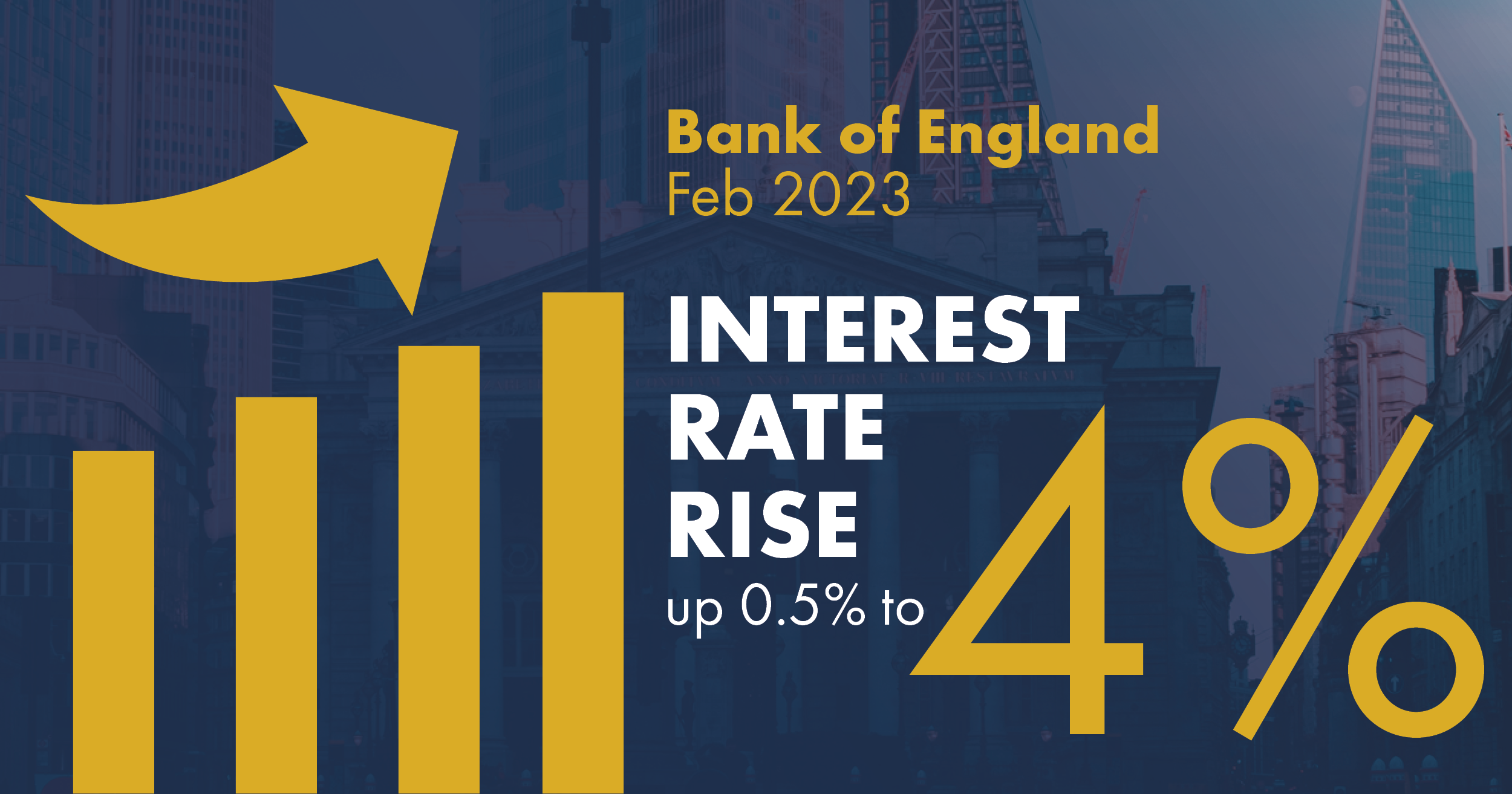Bank of England Interest Rate Rise
Bank of England Interest Rate Rise
Today the Bank of England voted to raise interest rates by 0.5% to 4% it’s 10th consecutive rise. The raise is hoped to balance inflation which has been higher than forecast in the November Monetary Policy Report.
The UK chancellor, Jeremy Hunt, pledged to cut spending and borrowing – the decision to raise interest rates should affect the rate of borrowing and help slow inflation.
The effect of high wages on inflation
The bank reported that high energy prices are one of the main reasons for current high inflation. Russia’s invasion of Ukraine led to large increases in the price of gas. Higher prices for goods as a result of global supply chain issues following the COVID-19 pandemic have also had an effect. Whilst inflation has begun to fall in part due to lower energy prices, a shortage of workers to fill vacancies is affecting wage growth. Where employers are struggling to recruit, they are having to offer higher wages to attract applicants. The rise in the cost of goods combined with a rise in wages (without a rise in productivity) means that employers must increase the prices they charge for the goods and services they provide. As a result, prices for goods and services have risen - which could keep inflation above the Bank of England 2% target.
The Bank of England reported that:
“Both private sector regular pay growth and services CPI inflation have been notably higher than forecast.”
As inflation grows, households have less to spend. When people spend less on goods and services, prices rise more slowly - this lowers the rate of inflation. However, as a result, growth of the UK economy will slow. The UK economy is forecast to shrink in 2023 and into the first quarter of 2024.
“In the latest modal forecast, conditioned on a market-implied path for Bank Rate that rises to around 4½% in mid-2023 and falls back to just over 3¼%”
The Bank of England will next meet to vote on interest rates on 23 March 2023.
Source: Bank Of England, ONS

